Thousands of Peruvians head for capital to hold fresh anti-government protests, defying emergency state
Thousands of Peruvians have started to move toward the capital Lima for more massive anti-government protests, as the country continues to grapple with a major political crisis.
The protests are expected to take place on Monday, with the participants set to press on with their demands for resignation of President Dina Boluarte, closure of Congress, and new elections.
At least 3,000 protesters from Andahuaylas in southeastern Peru were heading for Lima on Monday in a caravan of trucks and buses, while dozens of peasants were organizing themselves to leave for the capital in the restive Cusco province.
The unrest began in December after former president, Pedro Castillo, was ousted and arrested after he tried to dissolve the parliament and rule by decree. He has been charged with rebellion among other offenses.
Since then, at least 42 people have died in violent clashes between the security forces and Castillo's supporters, who have been setting up burning roadblocks, attempting to storm airports, and staging mass rallies across the country.
Protester are now defying a state of emergency that the government has declared in the capital. The government has extended the emergency state by 30 days from midnight Saturday for Lima, Cusco, Callao and Puno regions, authorizing the military to back up police actions to restore public order.
Speaking at a "national agreement" meeting with representatives from the country's regions and various political institutions last Monday, Boluarte said she could not grant some of the protesters' key demands.
"The only thing that was in my hands was moving forwards the elections, which we have already proposed," she said, claiming, "What you are asking for is a pretext to continue generating chaos in the cities."
Other authorities have, meanwhile, been trying to pin the blame for the unrest on a handful of what they call "radical groups," brushing off Boluarte's tailspinning unpopularity among the grassroots.
"There is a small group organized and paid for by drug trafficking and illegal mining that wants to take power by force," Prime Minister Alberto Otarola said on local television.
He called on protesters to "radically change" their tactics and opt for dialogue, a demand that many of them have refused to fall in line with.
"We're going to be in the capital to make our protest voice heard," said Jimmy Mamani, an indigenous leader.
"It's not right that the executive cannot listen to our demands; they turn a deaf ear," he added, ruling out negotiation with the authorities.
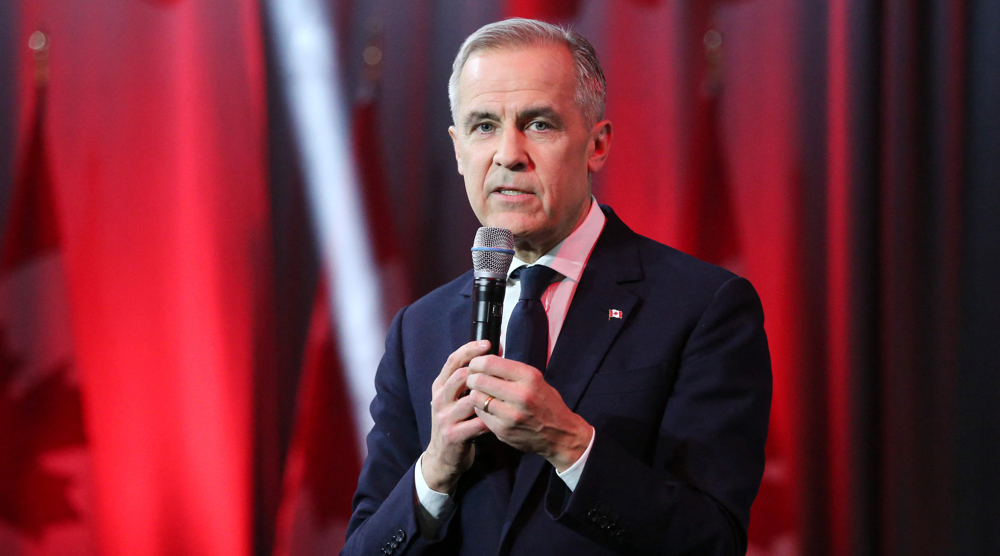
Canada’s next PM: We cannot let Trump and his trade war win
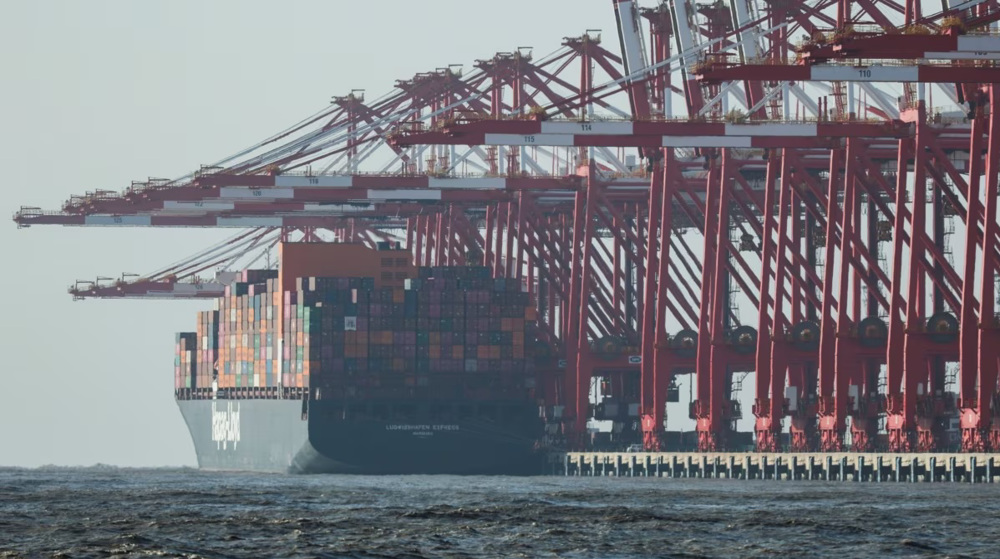
China vows response after Trump announces new 10% tariff
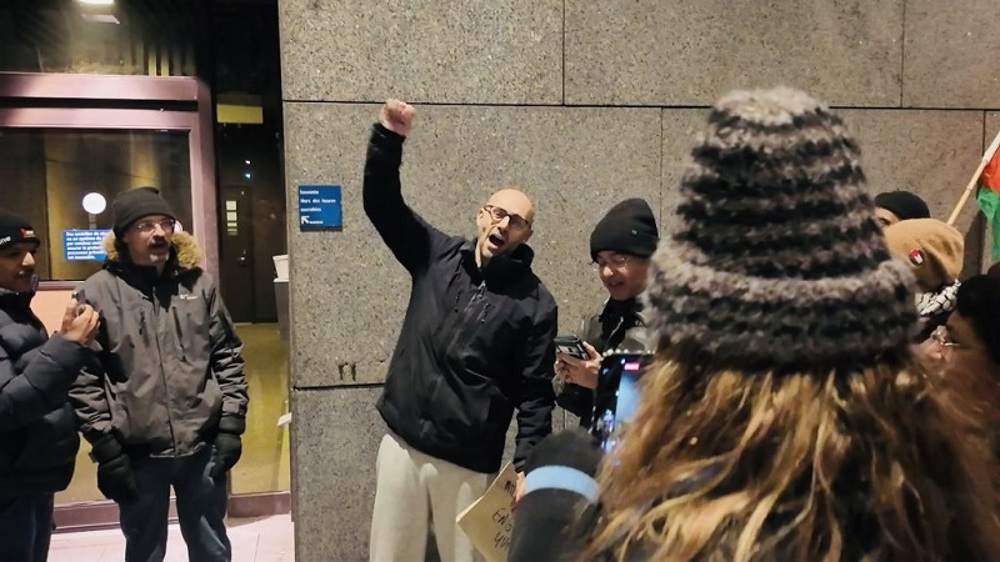
Montreal's Zionist attack on free speech
VIDEO | Press TV's news headlines
VIDEO | Displaced people in Jenin camp facing miseries during Ramadan
VIDEO | Struggling for survival: Water crisis in Gaza intensifies
VIDEO | US-South Korea military drills go ahead despite bombing accident
VIDEO | Gaza war aftermath: Patients at risk as fuel, medical supplies cut
Iran: US decision to revoke Iraq waiver ‘extremely deplorable’
VIDEO | Iran, Russia and China kick off Joint Naval Drills in Oman Sea
Houthi: Yemen army ready to start military actions against Israel


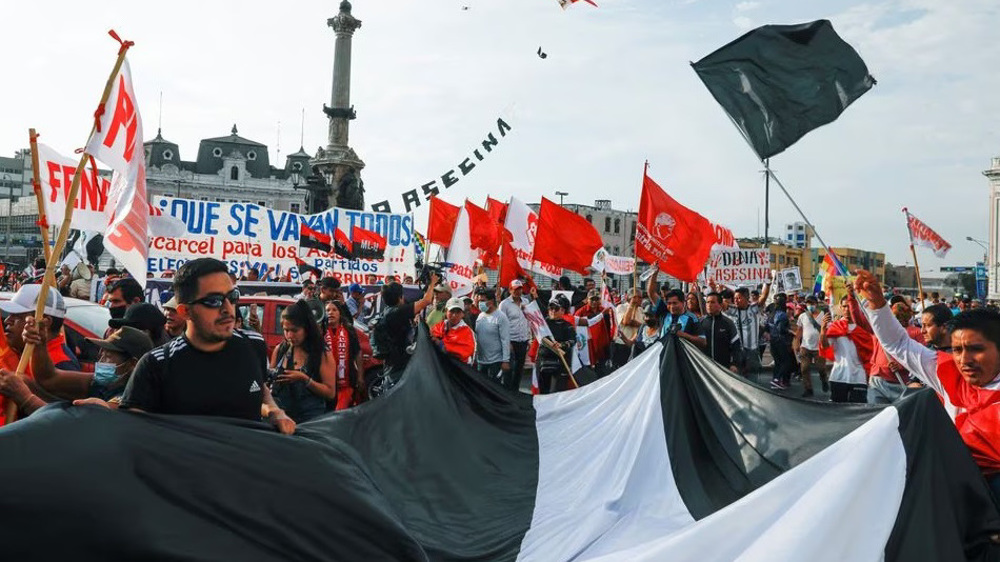
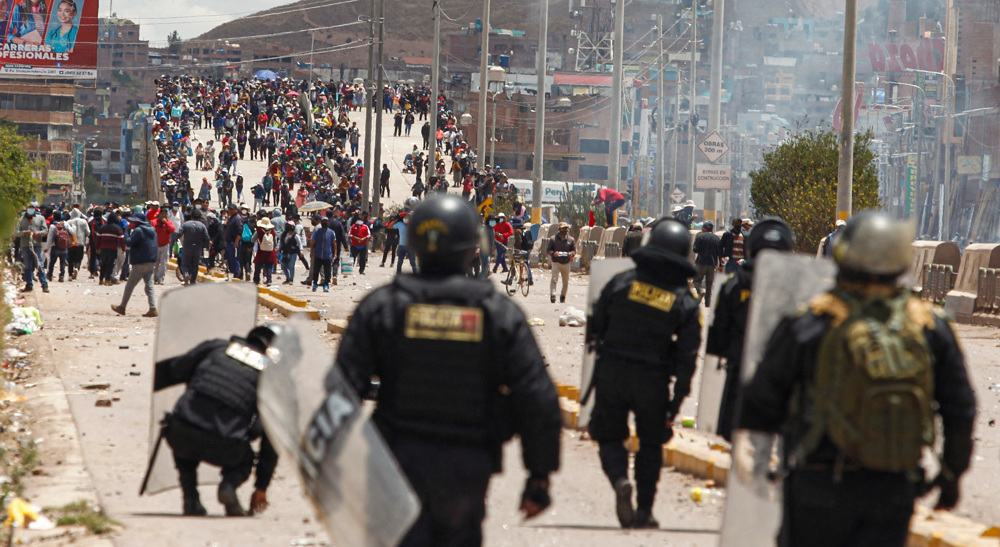



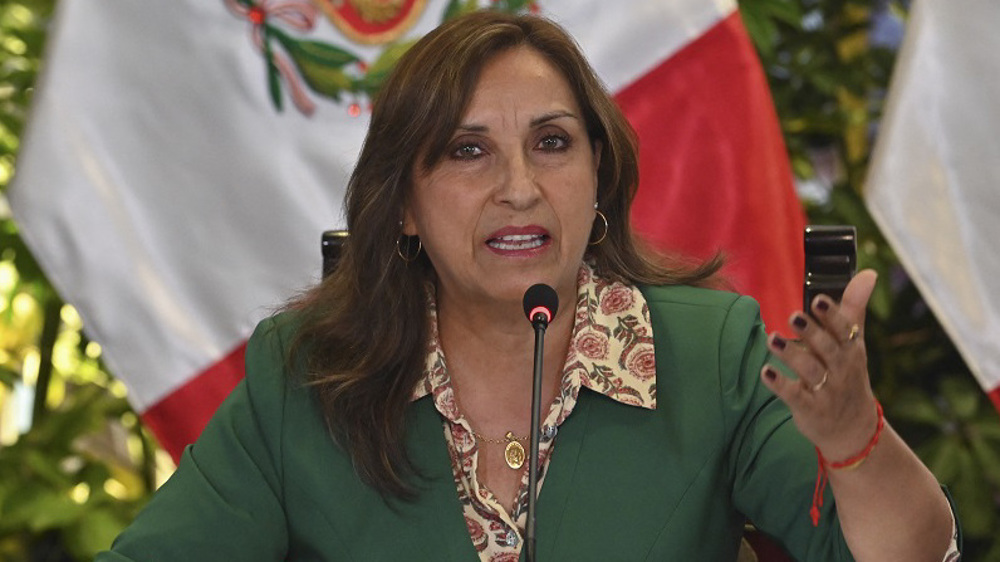
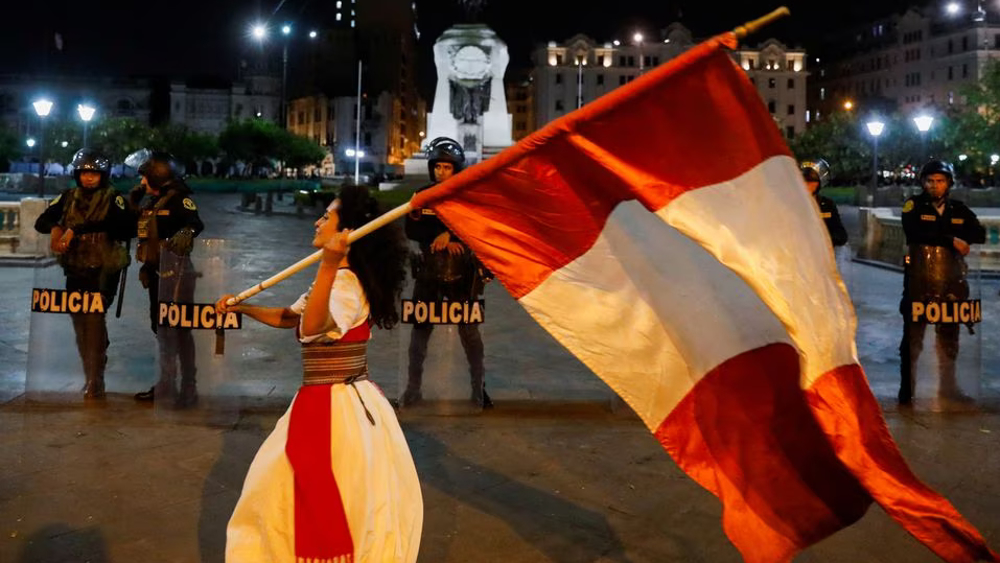
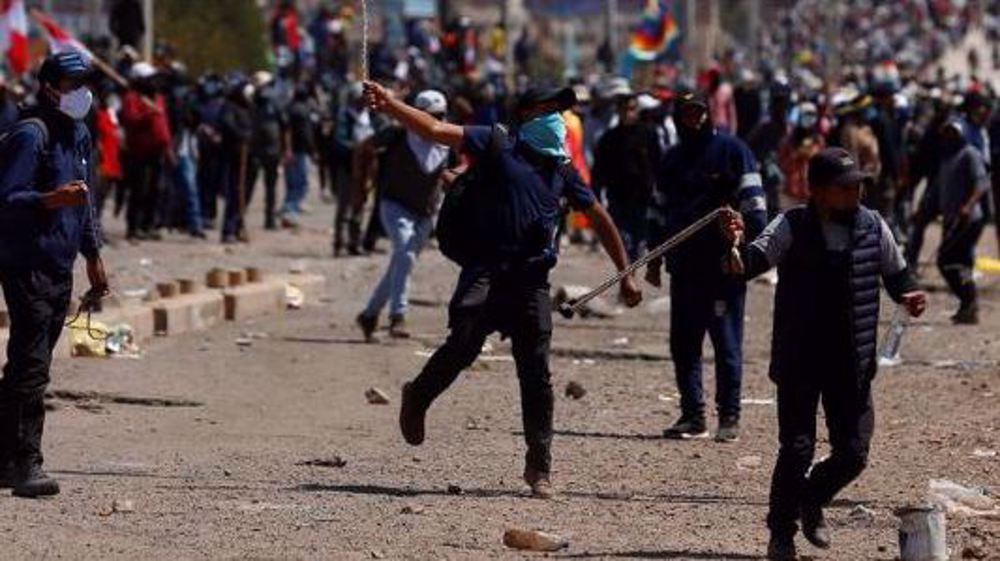

 This makes it easy to access the Press TV website
This makes it easy to access the Press TV website